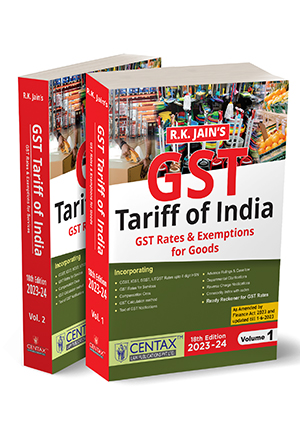Appellant’s Claim for Security Deposit Refund Under LoI Didn’t Qualify as Operational Debt Due to Contractual Obligation | NCLAT
- Blog|News|Insolvency and Bankruptcy Code|
- 2 Min Read
- By Taxmann
- |
- Last Updated on 20 June, 2024

Case Details: Carestream Health India (P.) Ltd. v. Seaview Mercantile LLP - [2024] 163 taxmann.com 525 (NCLAT-New Delhi)
Judiciary and Counsel Details
-
- Yogesh Khanna, Judicial Member & Arun Baroka, Technical Member
- Ms Fereshte Sethna, Abhishek Chauhan & Abhishek Tilak, Advocates for the Appellant.
- Sean Wassoodew, Advocate for the Respondent.
Facts of the Case
In the instant case, the appellant and the respondent (i.e. the corporate debtor) entered into a Letter of Intent (LOI) for leasing a unit. After paying a security deposit, the appellant found that the premises were ineligible for IT/ITES/STPI registration, contrary to initial representations.
The appellant sought to terminate the LOI and requested a refund, issuing several notices to the respondent. The respondent disputed these claims and asserted the right to forfeit the deposit due to the appellant’s non-compliance.
Thereafter, the appellant filed a section 9 petition, which the NCLT dismissed, ruling that the appellant was not an “Operational Creditor” as the claim did not arise from goods or services provided to the respondent. The appellant then appealed before the NCLAT against the order passed by the NCLT.
It was noted that the appellant’s claim for a refund of the security deposit under the LoI did not pertain to the provision of goods or services but rather to a contractual obligation contingent upon executing a leave and license agreement.
NCLAT Held
The NCLAT held that the security deposit was linked to a conditional contractual arrangement, not to the provision of any goods or services. Therefore, the claim did not constitute an operational debt under the IBC.
Further, since the appellant had neither supplied goods nor services to the corporate debtor nor received goods or services from the corporate debtor, the instant Tribunal concluded that the scope of “operational debt” under the IBC did not encompass situations like security deposits unrelated to any immediate service rendered.
List of Cases Reviewed
-
- Carestream Health India (P.) Ltd. v. Seaview Mercantile LLP [2024] 163 taxmann.com 524 (NCLT -Mum.)[para 21] affirmed[See Annex].
Disclaimer: The content/information published on the website is only for general information of the user and shall not be construed as legal advice. While the Taxmann has exercised reasonable efforts to ensure the veracity of information/content published, Taxmann shall be under no liability in any manner whatsoever for incorrect information, if any.

Taxmann Publications has a dedicated in-house Research & Editorial Team. This team consists of a team of Chartered Accountants, Company Secretaries, and Lawyers. This team works under the guidance and supervision of editor-in-chief Mr Rakesh Bhargava.
The Research and Editorial Team is responsible for developing reliable and accurate content for the readers. The team follows the six-sigma approach to achieve the benchmark of zero error in its publications and research platforms. The team ensures that the following publication guidelines are thoroughly followed while developing the content:
- The statutory material is obtained only from the authorized and reliable sources
- All the latest developments in the judicial and legislative fields are covered
- Prepare the analytical write-ups on current, controversial, and important issues to help the readers to understand the concept and its implications
- Every content published by Taxmann is complete, accurate and lucid
- All evidence-based statements are supported with proper reference to Section, Circular No., Notification No. or citations
- The golden rules of grammar, style and consistency are thoroughly followed
- Font and size that’s easy to read and remain consistent across all imprint and digital publications are applied





